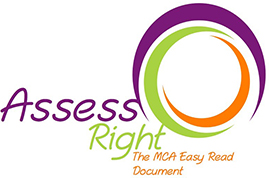The Court of Protection
The Court of Protection was created by the Mental Capacity Act. The Act provides for a new Court to make decisions in relation to the property and financial affairs, healthcare and personal welfare of adults (and children in a few cases) who lack capacity. The Court also has the power to make declarations about whether someone has the capacity to make a particular decision.
The Court of Protection has the powers to:
- Decide whether a person has capacity to make a particular decision for themselves;
- Make declarations, decisions or orders on financial or personal welfare matters affecting people who lack capacity to make such decisions themselves;
- Appoint deputies to make decisions for people lacking capacity to make those decisions;
- Decide whether a Lasting Power of Attorney (“LPA”) is valid; and
- Hears cases concerning objections to register an LPA
An application to the Court of Protection may be necessary in the following situations:
- Particularly difficult or serious decisions
- Disagreements about best interests that cannot be resolved in any other way
- Situations where ongoing decisions may need to be made about the personal welfare of the service user to make decisions for themselves.
The Court will inevitably seek to ensure that all appropriate alternatives have been considered and subsequently been unsuccessful before they consider any application. It is always important to think about any alternatives that can be utilised as a way of avoiding the Court of Protection as it is a last resort measure.
Alternatives to the Court of Protection
In general, disagreements can be resolved by either formal or informal procedures. There are however some disagreements that are so serious that they can only be resolved by the Court of Protection. But the court is not always the right place to settle problems involving people who lack capacity. It is usually best to try and settle disagreements before they become serious disputes. Many people settle them by communicating effectively and taking the time to listen and address worries. Disagreements may be settled informally or sometimes through mediation and the following options may be considered:
- Best interests meeting: Setting out the different options and discussing with family and professionals to try and find a resolution.
- Consider getting get independent expert advice.
- Using an Independent Mental Capacity Advocate (“IMCA”) to support and represent the person.
- Exploring mediation where an independent third party can assist in resolving any disagreements between parties.
Appointment of deputies
If a person loses capacity to make decisions about their property and financial affairs then an application may need to be made to the Court of Protection to appoint a deputy to look after the interests of a person who has been assessed as lacking capacity. This would normally happen when the person concerned has not already planned ahead by making a lasting power of attorney. If someone who lacks capacity to manage their property and finances then generally, no transactions can be validly undertaken on their behalf.
You can apply to the Court of Protection to become a deputy on behalf of someone who has been assessed as lacking capacity. The choice of a suitable deputy is likely to depend on their ability and willingness to act and circumstances. Some people will be unsuitable to act such as current or former bankrupts and non-UK residents.
As an alternative to family member or friends, a professional deputy can be appointed where a person has substantial high value or complex assets.
A panel deputy can be appointed by the Court if there is no one suitable or willing to take on the role as deputy. This is an option of last resort. By way of example, a situation where a panel deputy may be appointed is where there has been a dispute within the family as to who should manage the person’s property and financial affairs
If a person is only in receipt of state benefits then an application to the Department for Work and Pensions (DWP) may be made for an appointee to manage their benefits.
Emergency court orders
The Court of Protection can make an interim order if your case is urgent for example, if someone’s life or welfare is at risk and a decision has to be made without delay such as life-sustaining treatment. If the court agrees, you’ll be able to make the necessary decision on behalf of the person who lacks mental capacity.
It is important to remember that an application to the Court of Protection is a last resort. There are a number of alternative options available to assist in situations where there is disagreement about a person’s capacity to make a decision; their best interests or a decision/action someone is making on their behalf.



